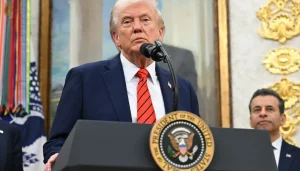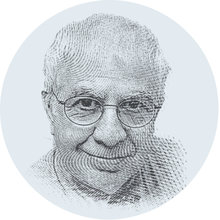Even long after Deng Xiaoping led China out of the Marxist deadlock created by Mao Zedong, the official discourse always focused on the letter “B” symbolizing the proletariat (working class). The leadership legitimized itself by referring to the working class, the producers in the supply economy. From this perspective, surplus value producers were the focus of economic policy.
However, in his recent public interventions, Chinese President Xi Jinping added a new letter, “M,” symbolizing the consumer. He emphasized prioritizing consumer interests in shaping the economic strategy of the People’s Republic.
This shift from “B” to “M” reflects the radical changes China has undergone as a rising global economic power.
Twenty years ago, the Chinese were producers supplying the world with cheap products that most citizens of the People’s Republic of China could not afford. Today, despite that, China ranks second in the consumer market after the United States and is expected to surpass it in purchasing power parity (PPP).
When the producer was the policy focus, improving living standards was assumed to be achievable only through wage increases. However, this path would deprive China of one of its relative advantages: cheap labor. Higher wages would make Chinese goods and services more expensive, leading to loss or shrinkage of export markets.
Chinese economists, searching for alternatives, rediscovered a nearly forgotten 19th-century French economist who challenged the rising tide of Marxist economics in his era and its focus on surplus value producers, i.e., the working class.
This French rival to Marx is Frédéric Bastiat, whose book “The Seen and the Unseen” was translated into Chinese in 2014, reportedly selling millions of copies. This was followed by translations of several speeches Bastiat delivered during his service as a member of the French National Assembly.
It is likely that President Xi read Bastiat’s book about a decade ago, around the time he and other Chinese leaders discovered German Carl Schmitt’s thesis on politics.
Schmitt explained to Xi how the state can gain legitimacy through success in enforcing discipline, ensuring security, providing prosperity, and limiting corruption.
Bastiat, for his part, taught several things: minimizing the state’s mechanism to allow so-called civil society greater role. While Marxist economists advocated central planning and increased government spending, Bastiat showed that the most successful states created by the industrial revolution kept the state’s share of GDP at a minimum.
Another proposition Bastiat made is that improving citizens’ living standards cannot be achieved solely by raising wages because that might lead to price increases through inflation, resulting in a counterproductive outcome. He demonstrated that over 60% of living standard improvements in 19th-century Western European industrial countries came through price reductions, not wage increases. This led to Bastiat’s greatest hypothesis: the surest way to improve humanity’s life is free trade in a market economy system.
If low prices are the key to prosperity, producers will need more consumers, i.e., expanding markets that can boost mass production which lowers costs. In other words, expanding demand achieves your goal.
In his characteristic satirical style defending his theses, Bastiat suggested that the government at the time, worried about mass unemployment, instead of adopting protectionism, should burn Paris and then rebuild it by employing hundreds of thousands and creating an economic boom.
In its most radical form, this hypothesis translates into a policy of no tariffs. U.S. President Donald Trump, who clearly is not a fan of Bastiat, calls tariffs the most beautiful word in the English language dictionary and is determined to dismantle as much as possible of the structure built by four decades of globalization.
Thus, we witness an unusual scene where the leader of a state that first raised the banner of global free trade for decades faces the leader of another state based on Marxist theories of a planned economy, as an opponent and supporter of Bastiat’s doctrine of no tariffs. Needless to say, Bastiat’s system—although he would reject such a phrase—is anti-protectionist.
The Chinese leaders’ discovery of Bastiat, the opposite of their former beloved Marx, is good news for both China and the world. However, it would be wrong to turn Bastiat-ism—if such a slogan can be coined—into a rigid doctrine.
More importantly, Bastiat was unaware of modern government structures that transformed Thomas Hobbes’ “Leviathan” into a regulatory machine serving special interests, trendy ideologies, and the cult of the imaginary victim.
Bastiat did not win the debate even in mid-19th century France, when “Leviathan” was certainly not the all-encompassing governing machine as is the Chinese government apparatus today.
The current tariff war places Trump in the protectionist position inspired by David Ricardo, let alone Karl Marx, against Xi Jinping who discovered Adam Smith through Frédéric Bastiat. This conflict shows that ideas also have a free market and can spread in different directions over different periods.













Recommended for you
Talib Al-Rifai Chronicles Kuwaiti Art Heritage in "Doukhi.. Tasaseem Al-Saba"
Exhibition City Completes About 80% of Preparations for the Damascus International Fair Launch
Unified Admission Applications Start Tuesday with 640 Students to be Accepted in Medicine
Egypt Post: We Have Over 10 Million Customers in Savings Accounts and Offer Daily, Monthly, and Annual Returns
His Highness Sheikh Isa bin Salman bin Hamad Al Khalifa Receives the United States Ambassador to the Kingdom of Bahrain
Al-Jaghbeer: The Industrial Sector Leads Economic Growth